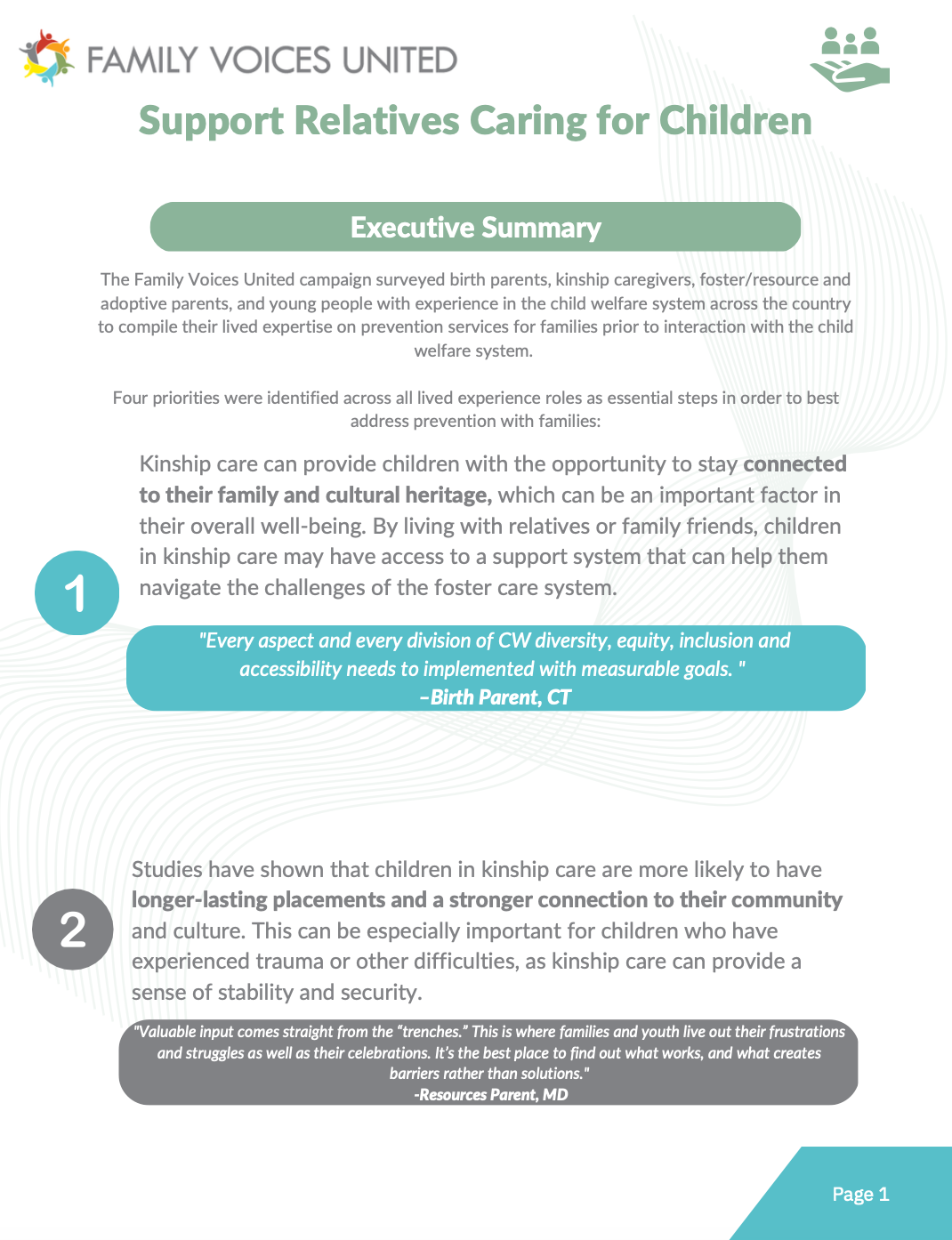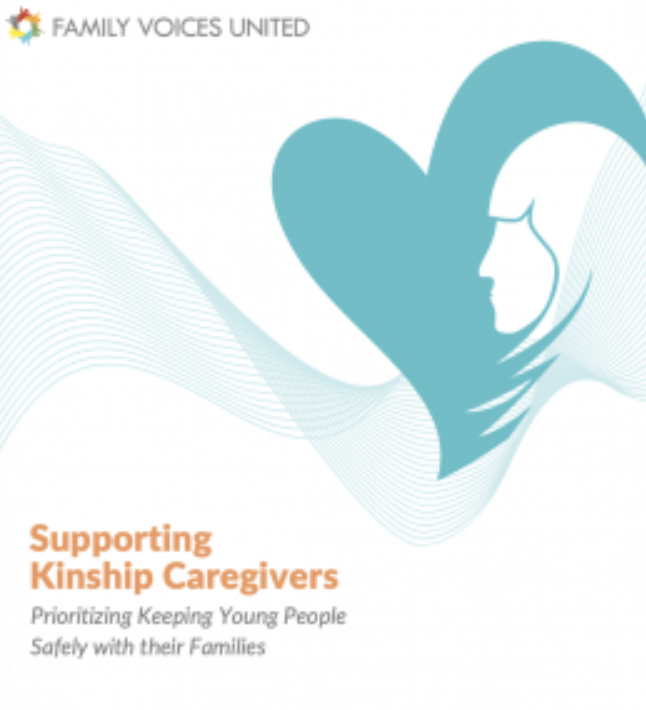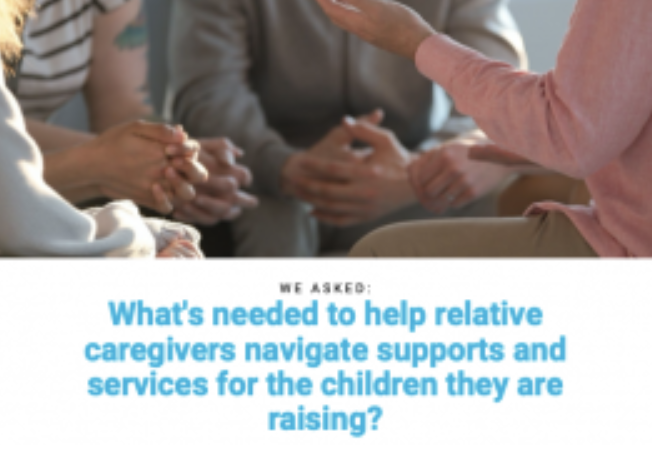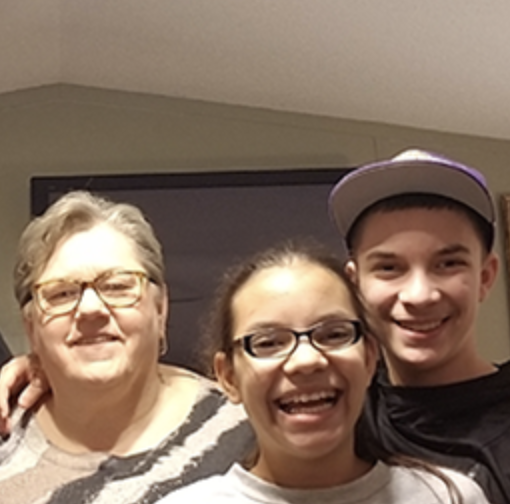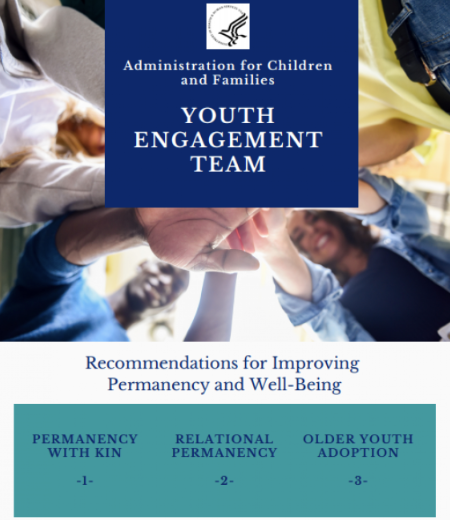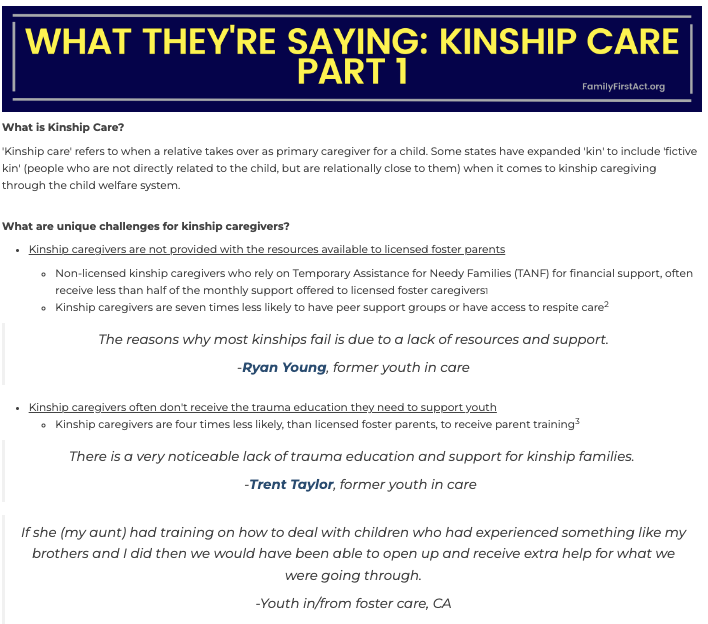Family Voices United seeks to raise awareness about the unique challenges and benefits of kinship caregiving, as well as how the child welfare system can better support kinship caregivers.
Why this topic matters to us:
Many of our Lived Experience Advisory Board members have experienced kinship caregiving and are personally aware of the unique benefits and challenges that are involved with kinship caregiving.
Between 2011 and 2021, the number of youth in foster care residing with a relative rose by 25,878 youth-or 8%-according to the AFCARS report. As more youth enter kinship care placements, it is important to ensure that kinship caregivers are receiving the support they need to make placements successful. To achieve this, lived experience voices and experiences must be listened to.
35%
of youth in foster care live with kin according to the 2021 AFCARS report.***NEW: SHARE YOUR PERSPECTIVE PAPER***
on the positive outcomes of placing youth in kinship care!
Scroll to learn more or click the button below to read the paper!
We asked: "What are the positive outcomes of placing youth in kinship care?"
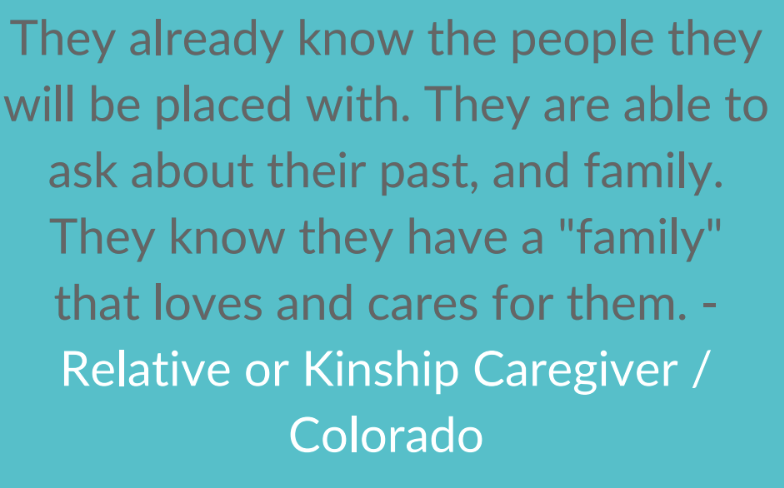

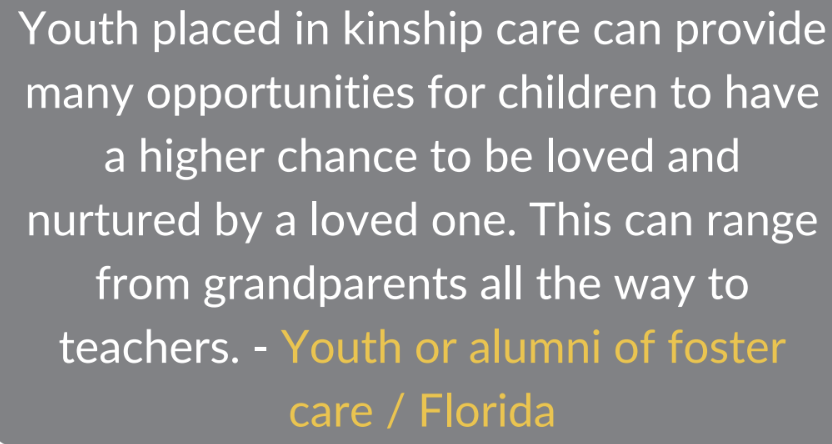
Benefits of kinship care informed by family voices
1. Stay connected
Kinship care can provide children with the opportunity to stay connectedto their family and cultural heritage, which can be an important factor in
their overall well-being.
2. Higher rates of permanency
Studies have shown that children in kinship care are more likely to havelonger-lasting placements and a stronger connection to their community
and culture.
3. Increase chances of reunification
4. Provide natural and supportive environment
By living with relatives or family friends, children in kinship care may be better able to maintain a sense ofcontinuity and stability in their lives.
Kinship Caregiver resources that center family voices
Podcast: Supporting Kinship Caregivers
Listen as Family Voices United members share how support can make a difference for kinship families. Learn how constituents are taking action, getting involved, and building the movement!Share Your Perspective Paper: Supporting Kinship Caregivers
Family Voices United launches regular "Share Your Perspective" questions on timely topics relating to child welfare. This campaign centers around the question, "In an effort to keep young people with their families, what specific supports should relatives or kinship caregivers receive?"Share Your Perspective Paper: What's needed to help relative caregivers navigate supports and services for the children they are raising?
Family Voices United asked kinship and relative caregivers, parents and current and former foster youth:
"What's needed to help relative caregivers navigate supports and services for the children they are raising?"
We received an overwhelming response to that question. This resource highlights some of those voices and their recommendations.
Kinship Grandparent Shares Her Experience with Mental Health Supports and Navigating the System
As a kinship grandparent of an 11-year-old granddaughter and a 13-year-old grandson, life has changed for both the grandchildren and grandparents.Youth Engagement Team: Improving Permanency and Well-Being
These recommendations come from three roundtable discussions were held with the Youth Engagement Team and ACF Assistant Secretary Lynn Johnson, Commissioner Elizabeth Darling, and Associate Commissioner Jerry Milner. The topics discussed were
1) supporting permanency with kin,
2) supporting relational permanency and
3) supporting successful older youth adoption.
What They're Saying: Kinship Care Part 1
This blog explores what people with lived experience with child welfare are saying about the unique challenges of kinship care. To achieve this, the blog utilizes quotes and insights from lived experience leaders.
Part 2 of the series explores how to best support kinship caregivers.

